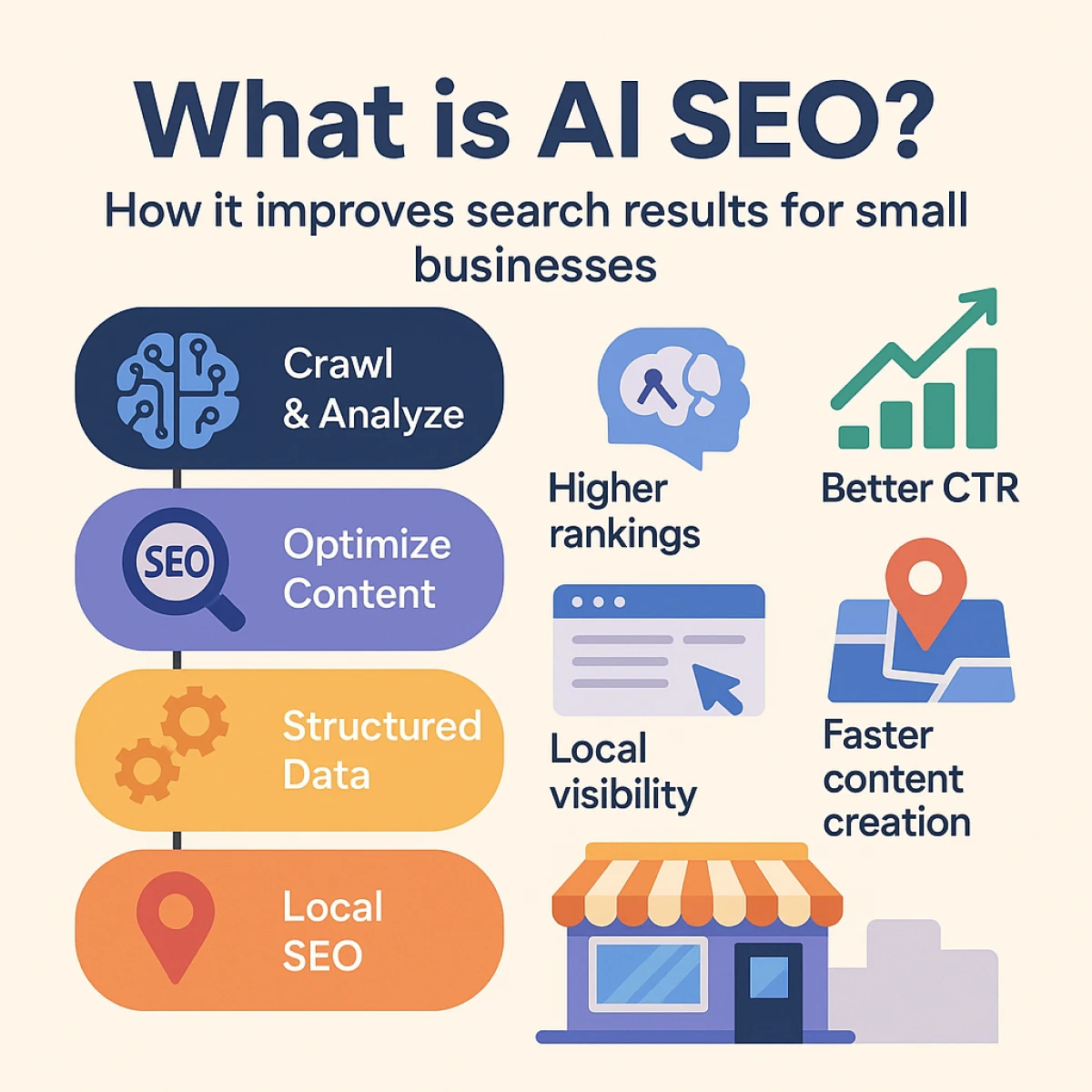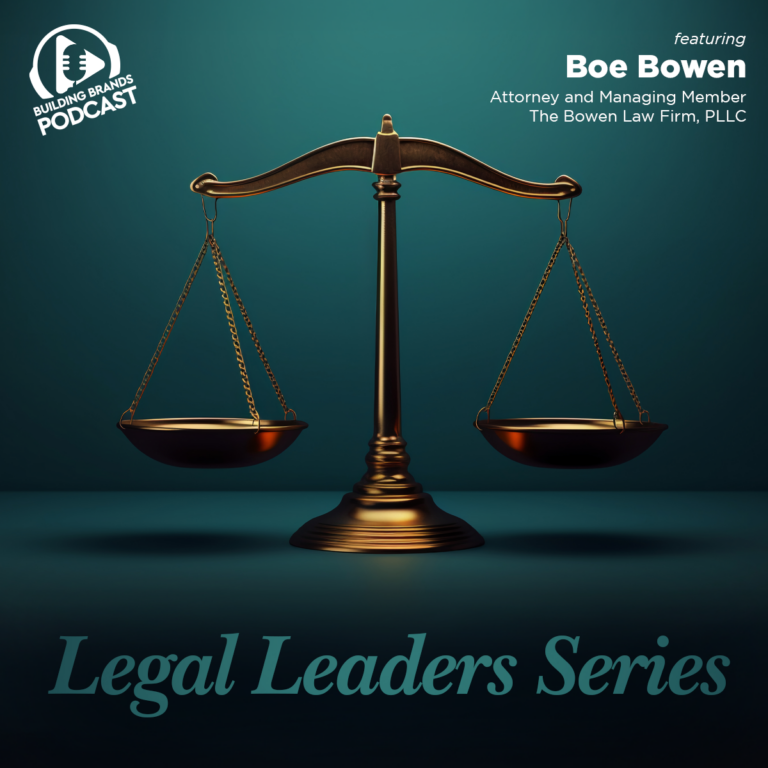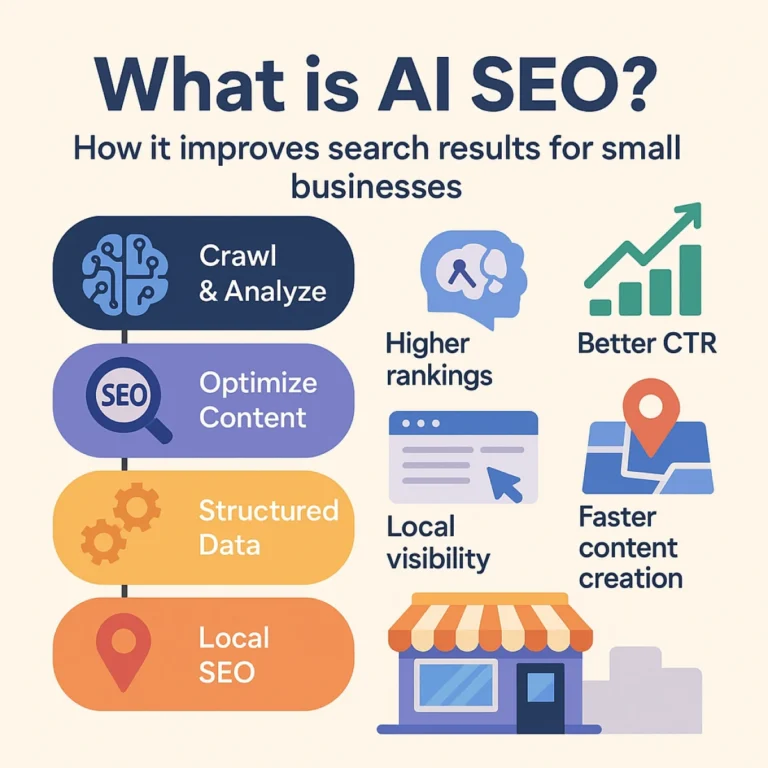Google processes 5.9 million searches per minute, aka 8.5 billion searches per day or 3 trillion searches annually. AI in search engine optimization, or AISEO, is making it way faster how searches connect users to businesses like yours. Small business owners must understand this change to maintain their online visibility.
AI-powered tools and search engine algorithms now shape the modern SEO world. These focus on streamlining processes rather than flashy designs or lengthy content. HubSpot reports that 85% of marketers believe generative AI will affect content creation by a lot, and 51% already use AI tools to optimize their content for search engines. These technologies help businesses optimize content, predict search trends, and create customized digital marketing experiences.
This blog explains (almost) everything to know about artificial intelligence in SEO.
What is AI SEO and how it improves search results for small businesses
Definition of AI SEO
How AI is built into modern search engines
Why traditional SEO alone is no longer enough
Website clicks are going down even though search impressions are up. On top of that, 91% of pages get zero traffic from Google.
- Users get answers right in the search results through AI Overviews without visiting websites
- AI search cares more about meaning and topic coverage than traditional keyword placement
- People now use conversational searches that need context understanding
Traditional SEO tactics like keyword density and backlink strategies need to include AI optimization now. Your business risks becoming invisible if you don’t adapt, as more users rely on AI-generated answers instead of checking multiple websites.
Key areas where AI helps improve SEO
Smarter keyword research and search intent analysis
AI has revolutionized keyword research. What was once a time-consuming manual process is now a strategic advantage. Modern AI tools analyze large datasets to find hidden keyword opportunities and predict future trends within minutes. These tools identify relevant keywords with high search volume and low competition that align with your target audience.
Platforms (ex Ahrefs) can complement AI-driven systems by providing in-depth keyword data, competitor insights, and content gap analysis. When paired with other SEO and AI tools, you can uncover long-tail keyword opportunities and gain deeper insight into search intent. This combination creates a data-backed approach to building topical authority and producing content that meets real user needs.
Better content optimization using machine learning
Tools like Writesonic use machine learning algorithms to analyze top-ranking content and deliver specific, actionable recommendations for your pages. The platform can highlight keyword opportunities in your headers and suggest improvements to content structure that boost readability and SEO performance.
Other platforms give up-to-the-minute feedback on keyword usage, topical coverage, and readability. Your content gets full optimization before publication. You create semantically rich pages that work well for search engines and readers.
Technical SEO is soooo much easier with AI automation
AI tools make technical SEO tasks simple through automation. Tools like Screaming Frog can spot broken links, duplicate content, slow-loading pages, and Core Web Vitals issues. They prioritize fixes based on their effect on rankings. Technical SEO becomes proactive optimization instead of reactive problem-solving.
Small businesses with limited resources can now implement features like schema markup easily. AI helps implement proper structured data across your site in minutes instead of days.

How to make your website AI-friendly
Simplify your site structure
Use schema markup to help AI understand your content
These schema types should be your priority!
- LocalBusiness (vital for geographic relevance)
- Organization (core company details)
- FAQ (for question-based content)
- Product/Service descriptions
Write in a natural, conversational tone
Answer common questions clearly and directly
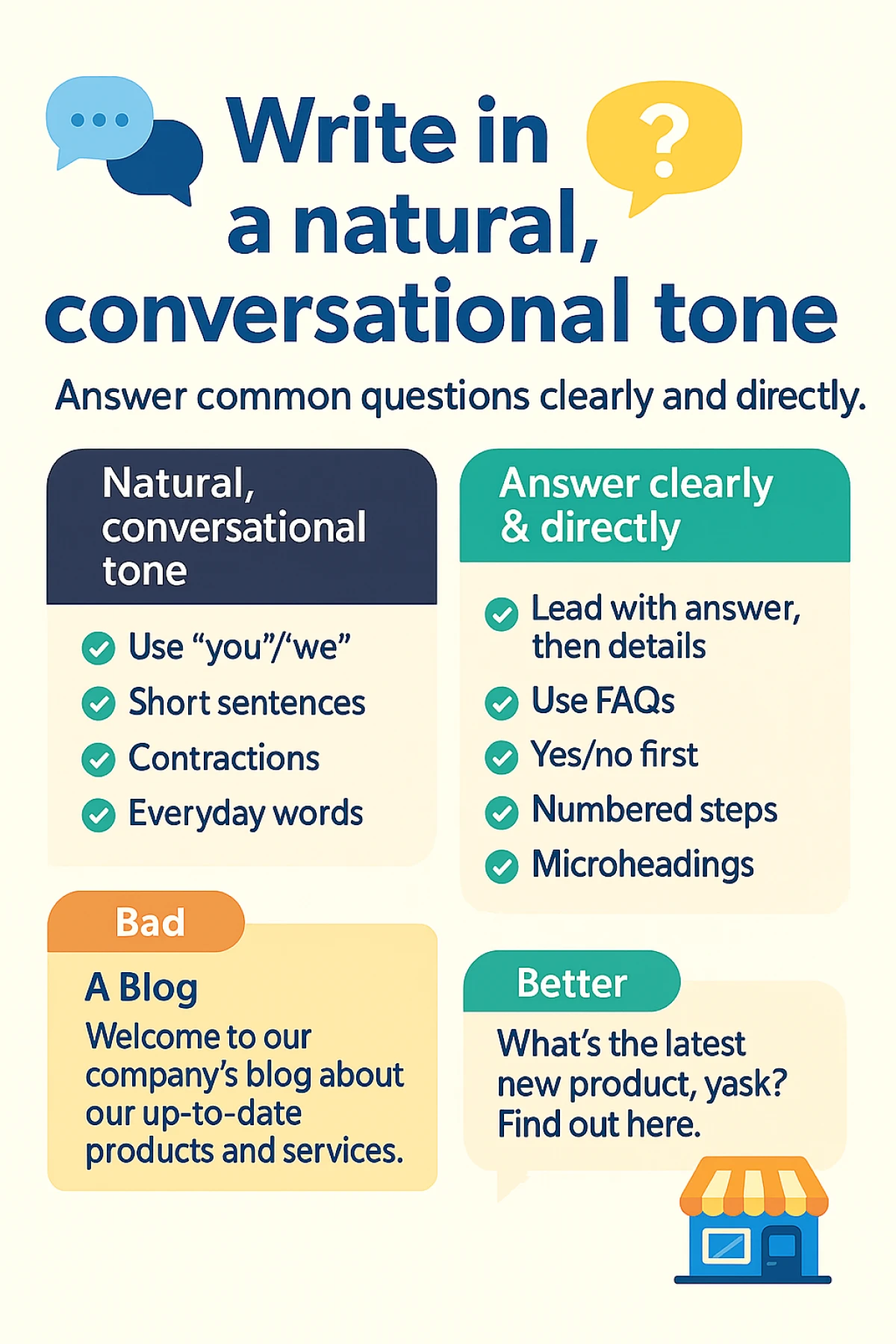
Future-proofing your SEO strategy
A Marketing Agency That Actually Delivers
Generative engine optimization (GEO)
- Connect high-intent users who show stronger purchase intent
- Move first while competitors stick to traditional methods
- Brand credibility grows when AI engines cite their content
Prepare for voice and visual search
Focus on building authority and trust
Keep learning and adapting as AI evolves
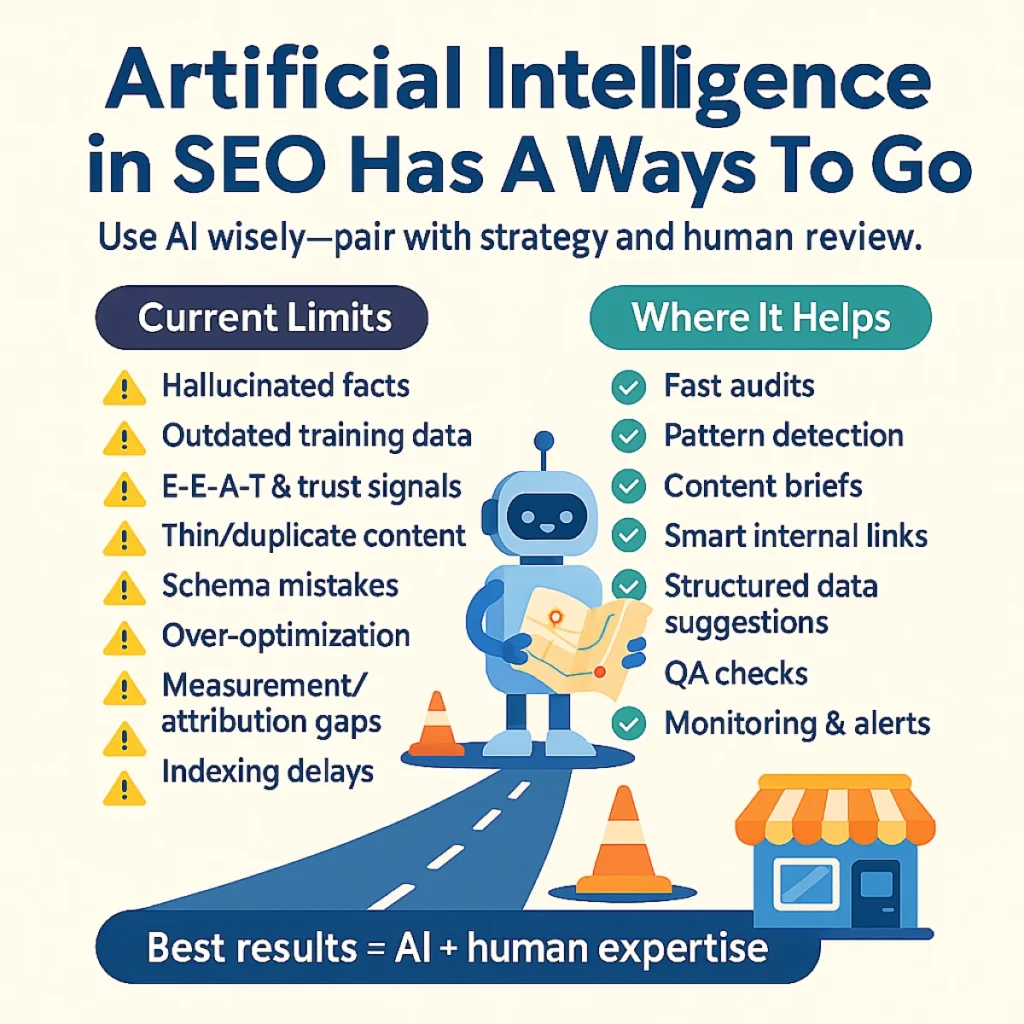
Artificial Intelligence in SEO Has A Ways To Go
Artificial intelligence has transformed SEO from keyword targeting into a strategy that demands adaptability and insight. Small businesses that use AI tools for keyword research, content optimization, and performance tracking have advantage by saving time, improving visibility, and staying competitive as search behavior keeps changing. You have to change with it, even if you fall down a few times along the way. You have to keep pushing yourself to be the best you can be out here!!
Building Brands Marketing helps small businesses apply these AI-driven strategies to build authority and attract legitimate traffic. If you’re ready to see how artificial intelligence in SEO can actually grow your business… We can help you.
Frequently Asked Questions
How can AI benefit small businesses in their SEO efforts?
AI can automate time-consuming tasks like keyword research, content optimization, and technical SEO. It provides smarter insights, predicts trends, and helps businesses compete effectively with competitors while saving time and resources.
What are some key strategies to make a website AI-friendly?
To make a website AI-friendly, simplify site structure, use schema markup, write a natural tone, and provide clear, direct answers to common questions. These practices help AI systems better understand and showcase your content.
How is AI changing the future of SEO?
AI is shifting SEO towards Generative Engine Optimization (GEO), where content is optimized for AI-powered search platforms. It is also driving the growth of voice and visual search, the importance of E-E-A-T principles, and requiring businesses to continually adapt to evolving search technologies. YOU MUST ADAPT.
How can small businesses prepare for AI-dominated search?
Small businesses should focus on understanding GEO, optimizing voice and visual search, building genuine authority and trust in their field, and staying informed about AI developments in search. Early adaptation to these trends can help establish a business as a trusted source before AI search becomes fully dominant.

